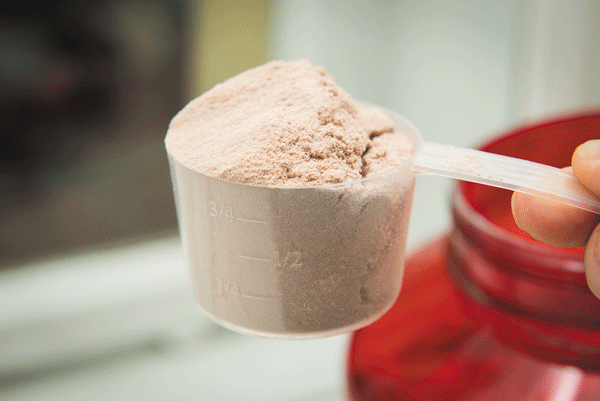
Counting steps is good — is combining steps and heart rate better?

Appendix pain: Could it be appendicitis?

Can saw palmetto treat an enlarged prostate?

How does Ozempic work? Understanding GLP-1s for diabetes, weight loss, and beyond

Zinc: What it does for the body, and the best food sources

Respiratory health harms often follow flooding: Taking these steps can help

Tips to leverage neuroplasticity to maintain cognitive fitness as you age

Can white noise really help you sleep better?

Celiac disease: Exploring four myths

What is prostatitis and how is it treated?
Nutrition Archive
Articles
What you can learn from wellderlies
Some people live long lives with no disease or serious illness. What can they teach you about healthy living?
Image: Creatas | Thinkstock /Thinkstock
You won't live forever, but it may be possible to live a long and maybe disease-free life by following the lead of "wellderlies."
This is a term to describe a special group of people who have reached ages 90 to 100 without having any major health issue or disease. And if they do get sick, it often happens late in their life and a short period before death.
Get cooking at home
Sharpening your culinary skills (or developing new ones) can improve your diet, nutrition, and social life.
Image: gpointstudio/iStock
We tend to cook less as we age. Why cook when you can zap something in the microwave, pour something ready-to-eat into a bowl, or speed-dial for takeout? But this quick-eating trend has made many men adopt diets that put them at risk for weight gain, heart disease, and diabetes.
"Many older men have never developed or have lost touch with kitchen skills, and thus have become too dependent on processed and prepared foods," says Dr. David Eisenberg, of the Department of Nutrition at the Harvard T.H. Chan School of Public Health.
What is in a food label? You may be surprised
Terms like "healthy" or "natural" can be meaningless or misleading.
Image: Dragon Images/iStock
If you're like most nutrition-minded shoppers, the word "healthy" on the front of a package can be a big draw. "When you're stuck in a situation where processed foods are the only thing available to you, it can be helpful to know which foods are healthier than others," says Dr. Walter Willett, chair of the Department of Nutrition at the Harvard T.H. Chan School of Public Health.
Yet these days you're on shaky nutritional ground if you rely on front-of-package claims like "healthy" to determine which soup, sauce, cereal—or other canned, bottled, boxed, or bagged food—is the best choice. A food marked "healthy" may be loaded with sugar or refined carbohydrates.
Ask the doctor: Do artificial sweeteners cause insulin resistance?
In preliminary research, sucralose and acesulfame potassium increased insulin levels, although more studies are necessary to determine whether they—or other artificial sweeteners—increase the risk of insulin resistance.
White wine linked to higher risk of certain melanomas
Data from more than 200,000 people indicates that the risk of developing melanoma increases by 13% for every glass of white wine consumed per day. Drinking beer, red wine, or liquor was not associated with increased risk.
Spotting whole grains at the grocery store
That's the first step in avoiding unhealthy refined or highly processed grains.
Image: © JackF/Thinkstock
It's important to eat a diet that includes whole grains. But not everyone knows what that means. "Some people aren't sure what a whole grain is. It can be confusing, and you may wind up making the wrong food choices," says registered dietitian Kathy McManus, director of the Department of Nutrition at Harvard-affiliated Brigham and Women's Hospital.
Whole-grain goodness
Whole grains are seeds or kernels that have three parts: the bran, or outer skin; the germ, or embryo that can turn into a plant; and the endosperm, or food supply for the embryo. All three parts contain important nutrients such as protein, B vitamins, antioxidants, minerals, and unsaturated (good) fats. Many whole grains—such as barley, rye, and wheat—also contain fiber, which helps lower cholesterol, improves digestion, and controls blood sugar. A study in JAMA Internal Medicine linked eating whole grains to a 9% lower overall death rate and a 15% lower death rate from heart disease, as we reported in April 2015.
5 habits that foster weight loss
Paying attention to your eating habits and other lifestyle routines can help nudge down the number on the scale.
Image: © Rawpixel Ltd/Thinkstock
If you're like many Americans, you're still carrying an extra pound or two that you gained over the holidays. Over the years, that extra weight can really add up—and that added girth is hard on your heart.
Often, the hardest part about losing weight isn't about knowing what to eat. You've heard it a thousand times: eat lots of vegetables, fruits, whole grains, and lean protein. The real challenge is changing your habits to make those healthy choices part of your everyday routine without feeling too deprived.
Milk protein may lower blood pressure
A powdered form of whey protein from milk may modestly lower blood pressure.

Counting steps is good — is combining steps and heart rate better?

Appendix pain: Could it be appendicitis?

Can saw palmetto treat an enlarged prostate?

How does Ozempic work? Understanding GLP-1s for diabetes, weight loss, and beyond

Zinc: What it does for the body, and the best food sources

Respiratory health harms often follow flooding: Taking these steps can help

Tips to leverage neuroplasticity to maintain cognitive fitness as you age

Can white noise really help you sleep better?

Celiac disease: Exploring four myths

What is prostatitis and how is it treated?
Free Healthbeat Signup
Get the latest in health news delivered to your inbox!
Sign Up











